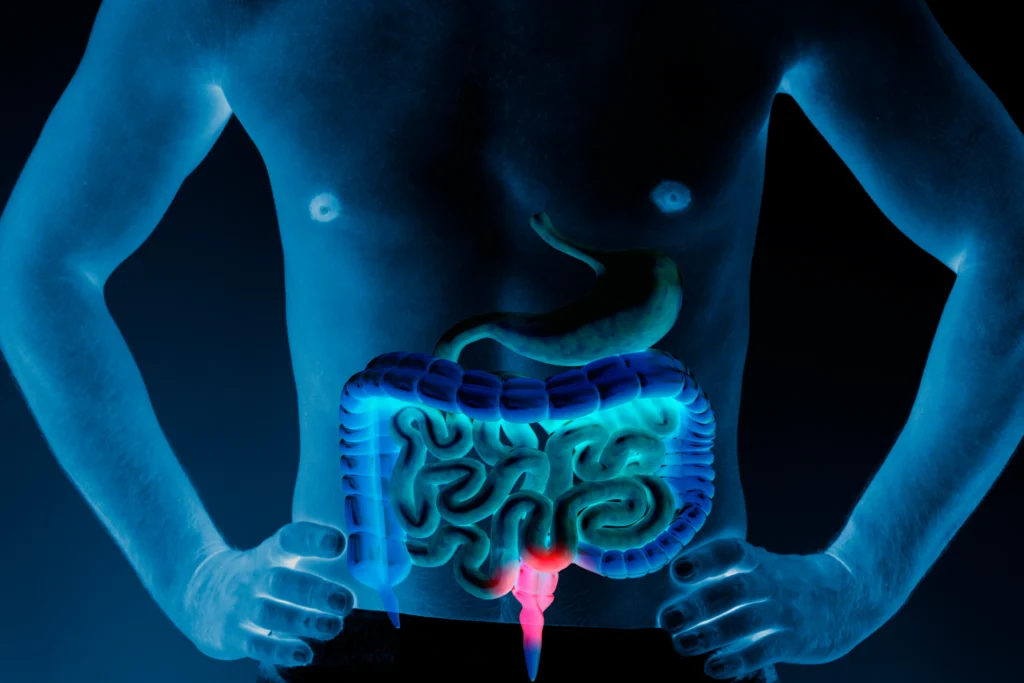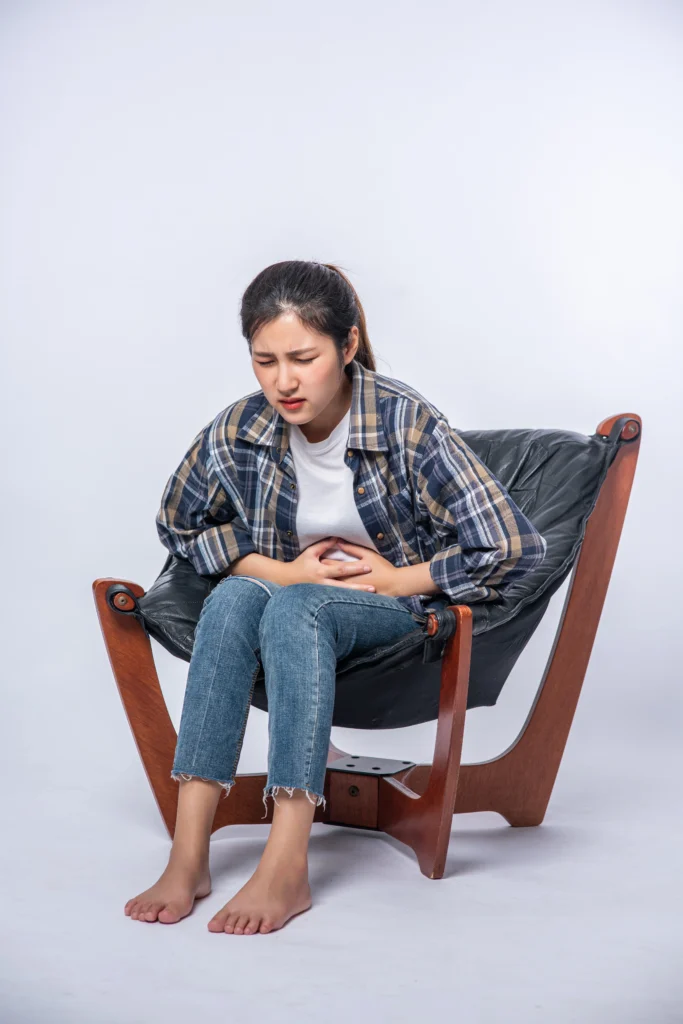Gastrointestinal Symptoms: Delve into the complexities of digestive issues with our comprehensive guide. From stomach discomfort to more serious conditions, gain valuable insights to better understand and manage gastrointestinal symptoms. Whether you’re experiencing occasional discomfort or persistent problems, this guide offers expert knowledge to help you navigate your digestive health effectively.
Explore common symptoms, potential causes, and practical solutions to address your concerns and promote a healthier gut. Empower yourself with the information you need to make informed decisions about your digestive well-being. Dive into our guide and gain clarity on gastrointestinal symptoms today.
Pelvic pain is often associated with pain in the reproductive organs. However, it is now clear that it can be present in both female and male organs. Pelvic pain can surface from an infection or discomfort from non-reproductive internal organs. Nevertheless, in women, pelvic pain symptoms may very well be a sign of a problem with any of the reproductive organs located in the pelvic region. It can be hard to figure out whether pelvic pain is gastrointestinal-related or gyno-related since parts of your colon lie near your pelvic area.
Conditions That May Have Pelvic Pain As A Symptom

Pelvic pain causes in women include –
- A pregnancy
- Ectopic pregnancy
- Miscarriage
- Pelvic inflammatory disease (PID)
- Ovulation
- Menstrual cramps
- Ovarian cysts or other ovarian disorders
- Uterine fibroids
- Endometriosis
- Cervical cancer
- Uterine cancer
- Ovarian cancer
There are several possible causes of pelvic pain, which include –
- The appendicitis.
- Bladder disorders (such as urinary tract infections).
- Sexually transmitted diseases.
- Renal calculi or infections.
- Gastrointestinal diseases (like colitis or diverticulitis).
- Disorders affecting the nerves (like pinched spinal nerves).
- A hernia.
- Disorders of the pelvis (such as pelvic muscle spasms and tightness).
- Fractured bones in the pelvis.
- Pain associated with psychological trauma or stress is known as psychogenic pain.
Gastrointestinal Symptoms Of Pelvic Pain

It is observed that gastrointestinal disorders, whether pathologic or functional, are present in a significant number of women who experience chronic pelvic pain. Referred pain from the gastrointestinal tract overlaps with reproductive organs. Chronic pelvic pain can feel excruciating after a bowel movement, or you can sense sharp pelvic pain when pushing to poop.
Irritable Bowel Syndrome
Examine your pelvic pain closely to determine whether your pelvic pain is gynaecological or gastrointestinal in origin. If you experience any of the following symptoms in addition to pelvic pain after bowel movement, you may have irritable bowel syndrome –
- Bloating
- Gas
- Diarrhea
- Constipation
- The mucus in your toilet
Painful Bladder Syndrome
Another illness that hurts to urinate is painful bladder syndrome, also called interstitial cystitis. This chronic condition leads to painful urinary symptoms.
- Feeling an urgent need to urinate.
- urinating more than usual
- Bladder pain that intensifies until you urinate
- Pelvic pain worsens during sexual activity
Constipation
Constipation is also one of the pelvic pain symptoms, mainly if it affects the lower colon. This type of pain tends to go away once a person has a bowel movement.
Appendicitis
Lower abdominal organs, such as the appendix, can press against the colon and cause inflammation, which can result in lower back or pelvic pain.
Treatments: How To Get Rid Of Pelvic Pain

The treatment of pelvic pain depends on several factors, including cause, intensity, and frequency of pain. Common pelvic pain treatments include –
- Medicine: Drugs, including antibiotics if necessary, are occasionally used to treat pelvic pain symptoms.
- Surgery: Surgery or other procedures may be necessary if the pain is caused by a problem with one of your pelvic organs.
- Physical therapy: In certain situations, your healthcare provider might suggest physical therapy to relieve pelvic pain.
- Lifestyle Adjustments: In certain situations, it may be advised to make lifestyle adjustments in order to alleviate pelvic pain or Discomfort After Bowel Movement.
- Cognitive Health Therapy: Cognitive behavioural therapy, gut-directed hypnosis, and relaxation training are examples of mental health therapies.
- Bowel Movement: It might also be advised to practice bowel training, which teaches your body to have consistent bowel movements and avoid Excruciating Pain After Bowel Movement.
Pelvic pain can be a sign of an underlying condition or a side effect of your period. Depending on which pelvic pain symptoms you are experiencing in addition to the pelvic pain, these conditions could be urologic, gynecologic, or colorectal.
Endometriosis, fibroids, irritable bowel syndrome, urinary tract infections, painful bladder syndrome, and pelvic floor dysfunction can all cause pelvic pain. Discuss any additional symptoms you may be experiencing with a healthcare professional so they can help identify the source of your problems and walk you through your treatment options.
FAQ More About Gastrointestinal Symptoms
What Could Be Causing My Pelvic Pain?
Pelvic pain can also be an indication of an organ issue within your pelvic region, even though it is frequently a sign of gastrointestinal problems or urinary tract infections.
What Are The Signs That Pelvic Pain Is Serious?
Visit the closest emergency department if –
● Sharp, severe, or sudden pelvic pain is experienced.
● You can not even stand upright.
● Your poop or pee contains blood.
● You have a fever.
● You are or were pregnant within the previous six months.
When Is Pelvic Pain Something I Should Be Worried About?
Pelvic pain is a sign of numerous conditions, making it particularly frustrating and cause for concern. Your medical professional can assist in identifying the source of your pelvic pain so you can get the necessary treatment to feel better.
What Are Common Gastrointestinal Symptoms?
Gastrointestinal symptoms encompass a range of digestive issues, including abdominal pain, bloating, diarrhoea, constipation, nausea, vomiting, and indigestion. If you experience any of these gastrointestinal symptoms, it’s essential to seek medical advice for proper evaluation and treatment.
Why Do Some Individuals Experience Pelvic Pain After A Bowel Movement?
Pelvic pain after a bowel movement can be a manifestation of gastrointestinal symptoms, such as irritable bowel syndrome (IBS) or inflammatory bowel disease (IBD). It’s crucial to consult with a healthcare professional if you’re experiencing pelvic pain after bowel movements for accurate diagnosis and management of gastrointestinal symptoms.
What Causes Sharp Pelvic Pain When Pushing To Poop?
Sharp pelvic pain when pushing to poop can be attributed to gastrointestinal symptoms like haemorrhoids, anal fissures, or conditions affecting the pelvic floor muscles. It’s essential to address such symptoms promptly by consulting a healthcare provider for appropriate evaluation and treatment of gastrointestinal symptoms.
What Might Be The Underlying Cause Of Excruciating Pain After A Bowel Movement?
Excruciating pain after a bowel movement could indicate gastrointestinal conditions such as inflammatory bowel disease (IBD), diverticulitis, or infections. Seeking medical attention is crucial if you experience severe pain after bowel movements to determine the cause and receive appropriate management of gastrointestinal symptoms.
How Can Individuals Alleviate Discomfort Following A Bowel Movement?
Discomfort following a bowel movement can be managed by adopting lifestyle changes such as maintaining a healthy diet, staying hydrated, and practising proper toileting habits. However, persistent discomfort warrants medical evaluation to identify and address underlying gastrointestinal symptoms effectively.
What Diseases Are Commonly Associated With Gastrointestinal Symptoms?
Gastrointestinal symptoms can be indicative of various diseases, including inflammatory bowel disease, irritable bowel syndrome, and pancreatic insufficiency.
How Can Pancreatic Insufficiency Contribute to Gastrointestinal Symptoms?
Pancreatic insufficiency can lead to malabsorption of nutrients and digestive problems, resulting in symptoms such as abdominal pain, diarrhea, and weight loss.
What Are The Common Symptoms of Gastrointestinal Diseases?
Gastrointestinal diseases can manifest with symptoms such as abdominal pain, bloating, diarrhea, constipation, nausea, and vomiting.
How Is Abdominal Pain Related To Gastrointestinal Symptoms?
Abdominal pain is a common symptom of gastrointestinal issues, including ulcers, inflammatory bowel disease, and pancreatic insufficiency.
Can Gastrointestinal Symptoms Indicate A More Serious Bowel Disease?
Yes, gastrointestinal symptoms such as persistent abdominal pain, changes in bowel habits, and unexplained weight loss may indicate underlying bowel diseases like Crohn’s disease or ulcerative colitis.
Conclusion
Innovative Therapy PC offers expert care for pelvic pain and gastrointestinal symptoms. Identify the causes and find effective treatments. Schedule a consultation today for personalized and comprehensive solutions to your well-being.





